The Media Crisis Undermining Every Progressive Fight for People and Planet
or, 'How the right built distribution networks while progressives bet everything on 'better messaging' without the system to move it.
We all feel it. The way disinformation moves faster than the truth. The way our most informed friends start repeating talking points that come straight from right-wing think tanks. The way every conversation about housing, healthcare, or climate gets derailed into a culture war that only benefits the people stripping away our rights.
This isn’t an accident. And it’s not because progressives have bad ideas or weak messaging.
It’s because we’re not acknowledging the structural problem. Better messaging alone can’t compete against the digital infrastructure the right spent decades building.

This Isn’t a Messaging Problem
Here’s what people keep getting wrong.
After every election loss, every policy failure, every moment when it feels like the country is slipping further right, the conversation turns to messaging. “We just need better slogans.” “We need to meet people where they’re at.” “We need our own Joe Rogan.”
Wrong.
Because researchers and experts have clearly said that even if we had the perfect message—the clearest, most compelling, most emotionally resonant framing in the world—it wouldn’t matter. Because that message has nowhere to go.
This is a media crisis, not a messaging problem.
Angelo Carusone, president of Media Matters for America (MMFA), put it plainly: the right doesn’t just have better messaging. They have narrative dominance. They’ve built a massive, coordinated ecosystem of creators, platforms, and distribution networks that flood the information space with their version of reality—while progressives are still trying to win arguments one viral tweet at a time.
What is MMFA? Media Matters for America is a leading and highly recognized watchdog that sets the standard for evidence-based media criticism and is relied upon by researchers, journalists, and advocates for its rigorous fact-checking and impactful analysis.
Here’s what that infrastructure actually looks like in practice
The MMFA study shared that 72% of so-called “apolitical” content online is actually right-leaning. Not openly partisan—apolitical. Self-help. Comedy. “Just asking questions.” The kind of content people consume without their guard up, because it doesn’t feel like politics.
Jordan Peterson talks about self-discipline and cleaning your room—and pipelines millions into anti-trans, anti-feminist ideology. Joe Rogan platforms “curious conversations”—while normalizing pro-gun, anti-liberal talking points to 40 million people. Charlie Kirk frames himself as patriotic and faith-based—while amplifying white supremacy rhetoric under the language of “freedom” and “values.”
This is the infrastructure. Not Fox News screaming at you. Not campaign ads you can ignore. It’s trusted voices, in spaces people already spend time, telling stories that feel apolitical—until you realize what they’ve been building toward the whole time.
This isn’t a Money Problem
We might think: “There is no money on the center/left” — but that’s not true.
Democrats in the U.S. spent billions last cycle—on ads. Paid ads that people scroll past, block, or ignore. Ads that work less and less because no one’s casting their vote based on a Facebook ad in 2025. And this isn’t just an American problem.
One of the most notable anti-Conservative spending figures from the 2025 Canadian federal election is the $4 million spent by Protecting Canada on a targeted TV ad (TV ad?! jfc who even has cable anymore? 🤦🏽♀️) campaign against Conservative leaders. Other major groups like Unifor, LeadNow, CUPE, and PSAC also spent millions each on anti-Conservative messaging.
But it’s not just elections. Nonprofits, unions, and advocacy organizations pour money into social media ads year-round—on Meta, on X, on platforms owned by billionaires. Money that disappears into algorithms designed to extract profit, not build people power.
Meanwhile, the right isn’t just running some traditional ads—they’re been building digital infrastructure.
They’re investing in a distributed network of storytellers, content creators, and influencers across every platform and audience segment—comedy, sports, gaming, wellness, finance, parenting. All resourced to keep going year-round, not just during election season.
The issue isn’t a lack of money. It’s reallocating funds from social media corporations to the civic infrastructure we actually need.
Collaborate With Us | RSVP October 15 @ 3pm ET | RSVP October 20 @ 3pm ET
What Progressives Need
Here’s what progressives keep missing: we can’t engineer culture. We can’t pay someone to post talking points and expect it to work. We can’t micromanage creators into authenticity.
What we can do is resource people who are already doing the work.
There are creators across this country who are already sharing crucial context, meeting people where they are, translating complexity, building trust, and inviting people into public discourse. They’re doing it off the side of their desks, between day jobs, without teams or income or support. They’re burning out trying to fill a gap that institutions failed to address.
The solution isn’t to create new voices. It’s also not hiring an underpaid Gen Z content creator to report to someone who doesn’t even have a TikTok account—someone who expects them to follow guidelines designed for press releases, not culture, and wait 3-5 business days for approval, while the moment they needed to respond to is already over.
The solution — during a time where authoritarianism is rising rapidly globally — is to leverage, support, and resource existing content creators who are value-aligned.
These creators are not digital billboards for your campaigns, they are the necessary civic infrastructure we need on the left as part of our tool kit to combat fascism that is spreading globally, south of the border and here at home.
This is a Canadian Problem
Canada has a developed right-wing creator ecosystem that mirrors what exists in the U.S.—networked, year-round, and strategically coordinated. High-profile influencers like Lauren Chen and Lauren Southern work as part of visible networks amplifying conservative narratives across YouTube, Meta, TikTok, and X.
Outlets like Rebel Media, Tenet Media, Canada Proud, and Post Millennial anchor this ecosystem, boosting viral content designed to mobilize conservative audiences continuously, not just during elections.
Canadian intelligence analysis confirms this networked infrastructure has fundamentally altered the information environment—making far-right views more visible and mainstream than ever before.
In addition, as of 2023, Canadians can no longer access news from legacy institutions on Facebook or Instagram. Meta blocked it entirely after Bill C-18 passed.
If we want to see change in this country — change that benefits the people and our planet — we actually have to do something about this asymmetry.
Politics Follows Culture
Fascism is theatre. And right now, the right has the stage, the lights, the sound system, and an audience that’s been primed to believe their version of the story.
We can’t win by writing better scripts. We need to build our own theatre—one that’s distributed, resilient, and rooted in the communities we’re trying to reach.
This is the fight. Not for one election cycle. Not for one viral moment. But for the information ecosystem itself—because that’s where culture gets made, and culture is where politics comes from.
The right understood this years ago. It’s time the rest of us finally catch up and counter it.
What We Can Do
If you’ve read this far, you already know the stakes. You’ve probably felt the asymmetry yourself—the way truth struggles while lies scale effortlessly, the way good work gets drowned out by noise.
We don’t have to be creators to be part of this.
We’re building the infrastructure, but infrastructure needs support. That means funding, partnerships, and people willing to resource long-term change instead of short-term campaigns.
It means unions, nonprofits, and media organizations recognizing that their work is stronger when connected to cultural power. It means individuals who get that this fight isn’t about one hero or one moment—it’s about building something durable enough to last.
We’re doing this work together.
Because changing the world? It’s a group project.
Collaborate With Us | RSVP October 15 @ 3pm ET | RSVP October 20 @ 3pm ET
Creators for Humanity builds civic infrastructure to counter disinformation, resource storytellers, and reclaim digital spaces for truth and collective humanity. Learn more at creators4humanity.org
This initiative is led by Samanta Krishnapillai and Nora Loreto.
Sources
https://www.mediamatters.org/google/right-dominates-online-media-ecosystem-seeping-sports-comedy-and-other-supposedly ‘
https://www.desmog.com/2025/03/25/poilievre-mapped-his-inner-circle-of-lobbyists-and-right-wing-activists/
https://www.elections.ca/content.aspx?section=fin&dir=oth%2Fthi%2Fadvert%2Ftp45&document=index&lang=e
https://www.democracywithoutborders.org/36317/autocracies-outnumber-democracies-for-the-first-time-in-20-years-v-dem/
https://www.ourcommons.ca/documentviewer/en/44-1/SECU/report-6/page-48




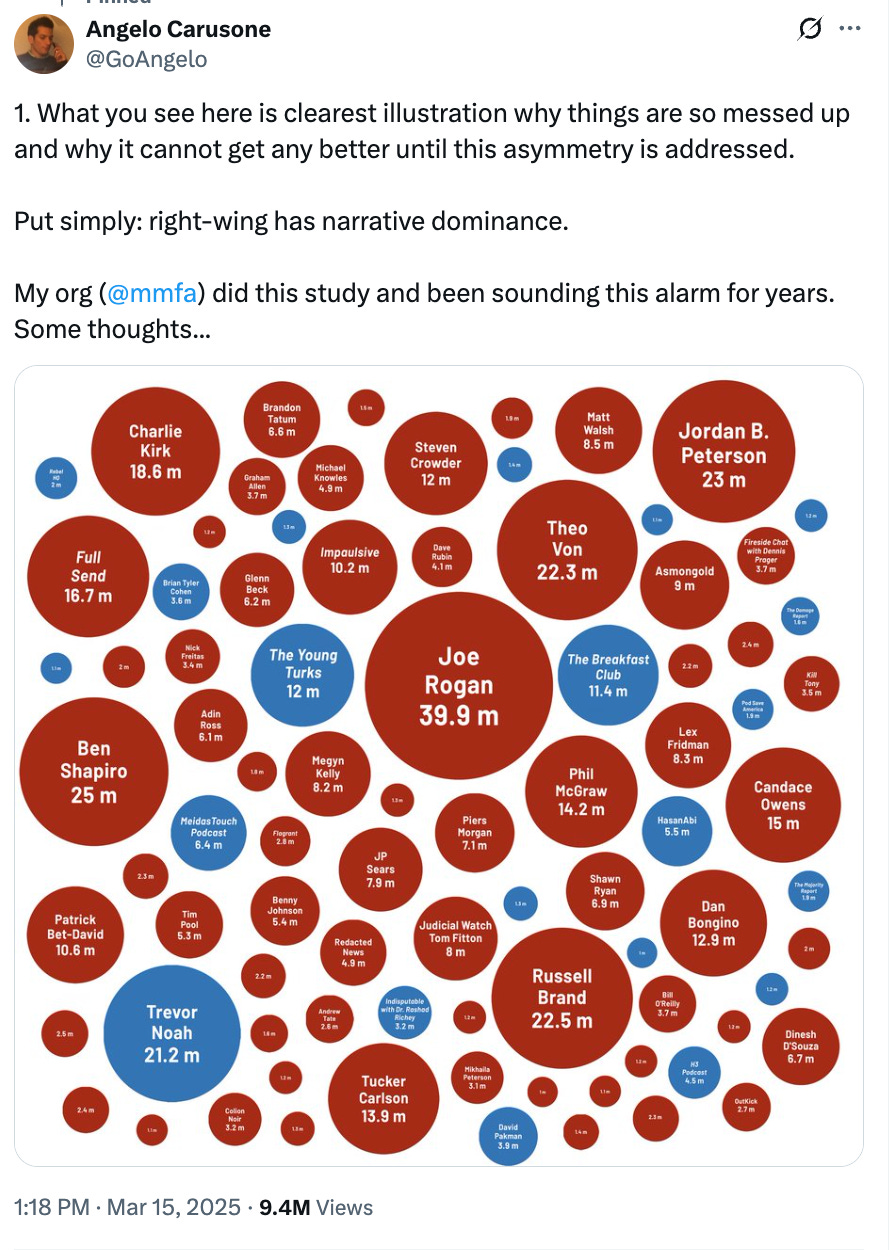
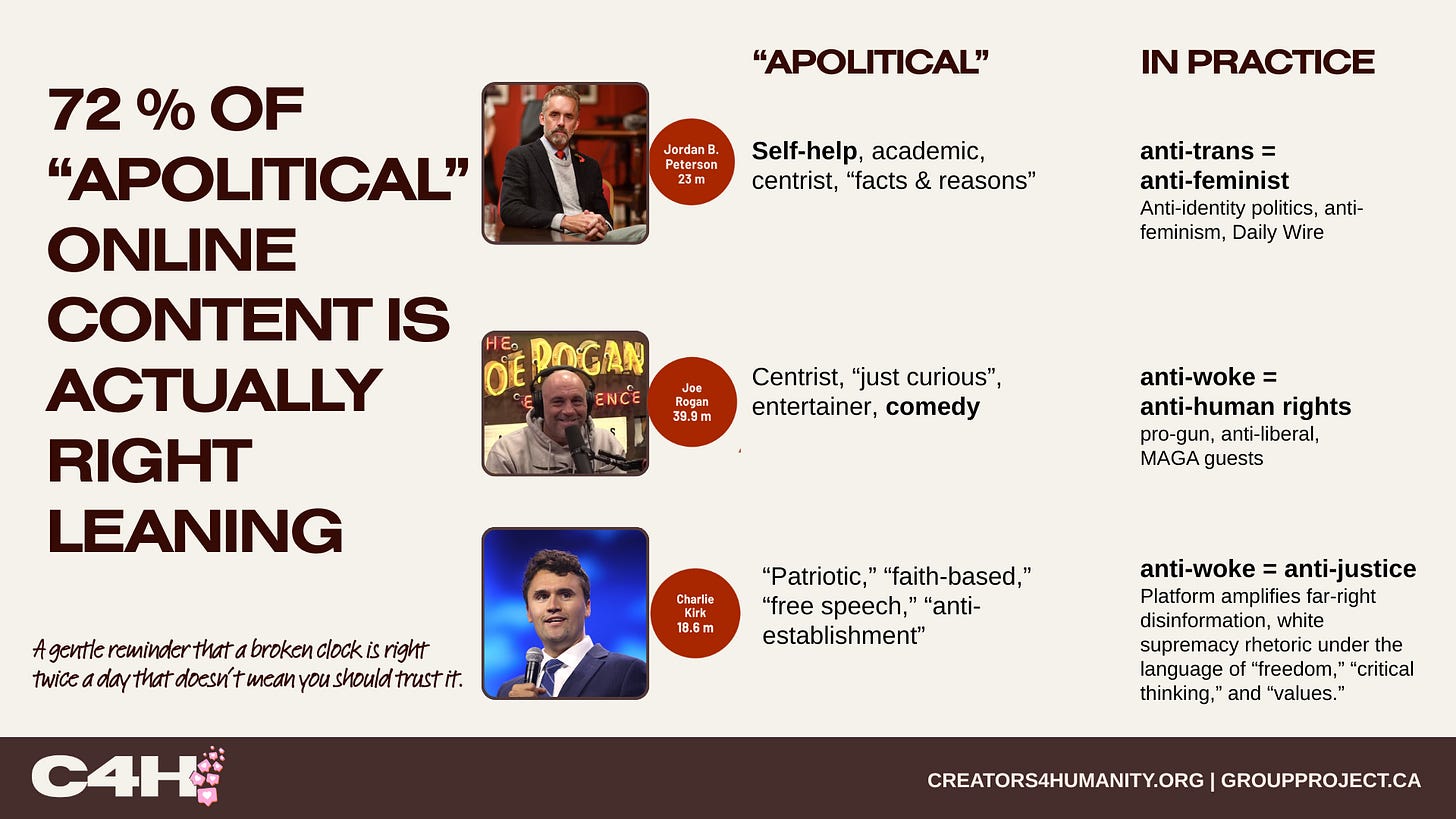
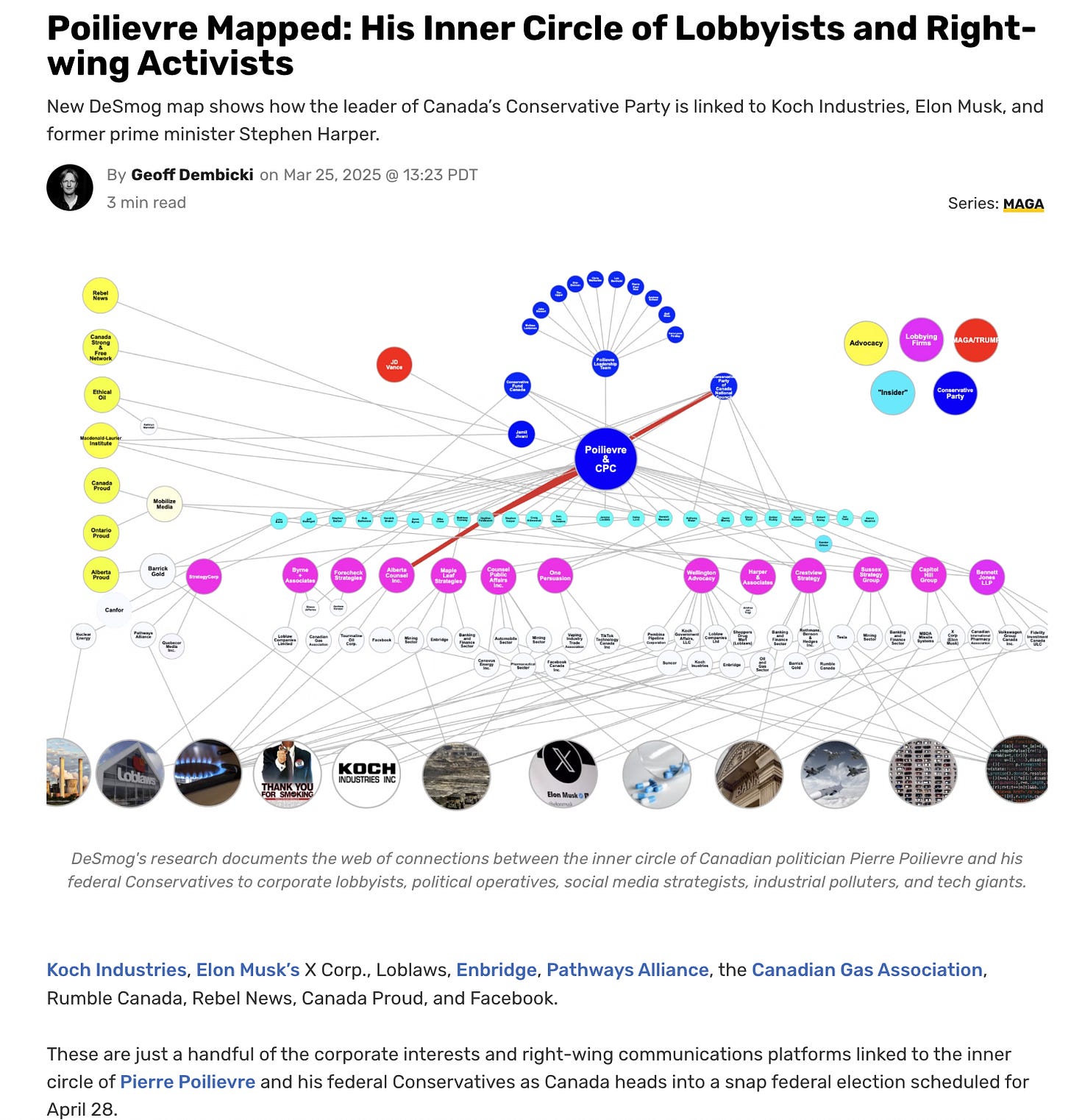


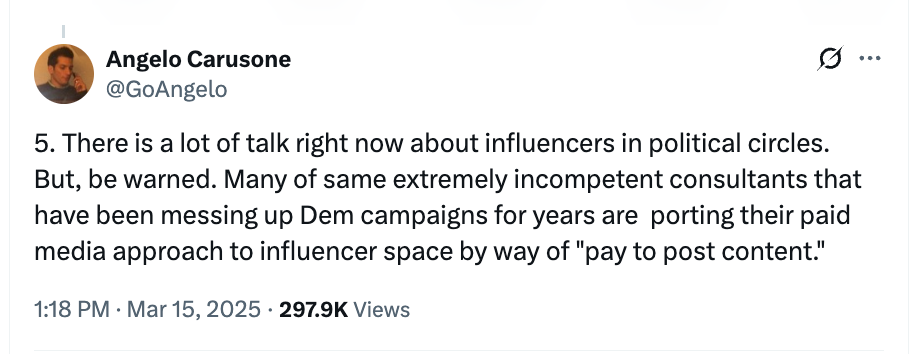
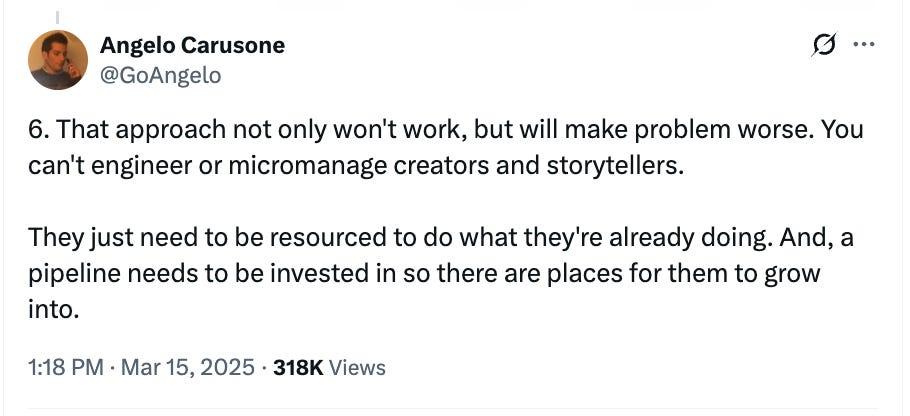
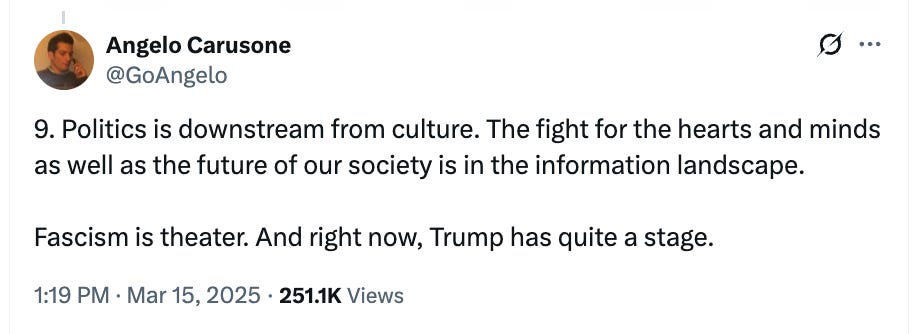
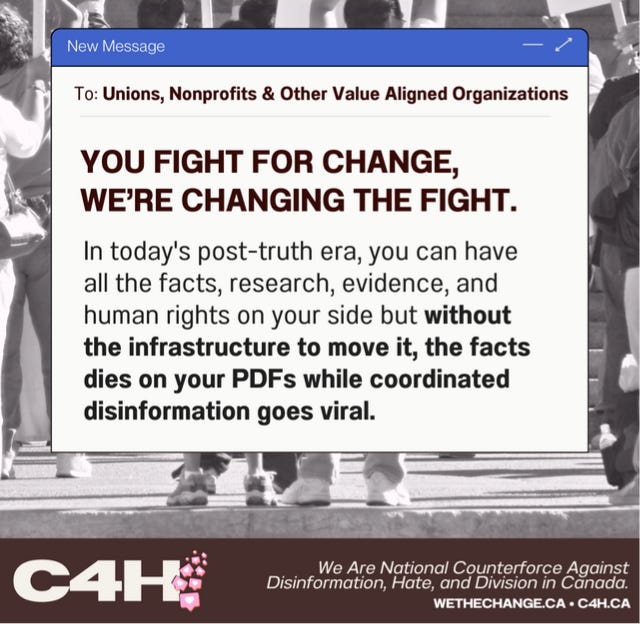
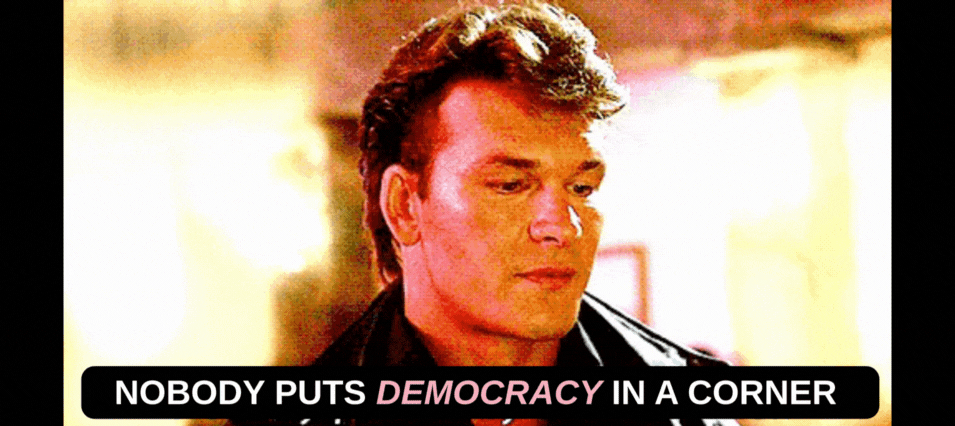
Related work is happening in US, such as at https://newworldinsights.substack.com/p/building-for-the-right-war-before -connecting for ideas may help? thanks for your work!